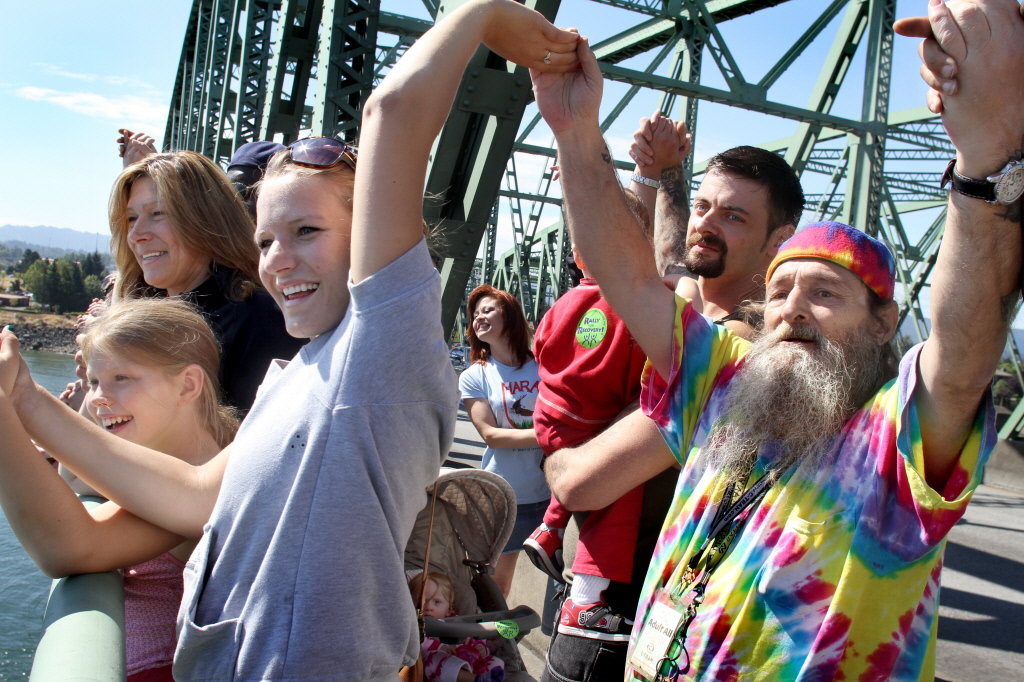
September is National Alcohol & Drug Addiction Recovery Month. On Labor Day, Washingtonians and Oregonians in recovery, along with family and friends, joined hands in a human chain across the Interstate 5 bridge that spans the two states. Patty Katz and Louise Wedge launched the annual Hands Across the Bridge event eight years ago to celebrate their own recovery and, as Patty puts it, "to put a face on recovery."
That's an important goal. As the U.S. Substance Abuse and Mental Health Services Administration documents, strong social support - connecting people, hand in hand, face to face - is critically important to achieving and maintaining recovery from addiction.
Unfortunately, it's also still in short supply. As reported earlier this month in the American Journal of Psychiatry, despite a significant increase in the public's understanding of addiction as treatable condition, the stigma surrounding addiction remains unchanged. In fact, some surveys found an association between increased understanding of the medical nature of addition, and related support for treatment, with an increase, rather than a decrease, in community rejection of addicted persons.
Where is this antipathy coming from? Why do we ostracize and isolate people struggling with addiction?
The answer is not simple or clear-cut, but certainly the War on Drugs has played a significant role in imprinting addicted individuals in the public consciousness as people more deserving of scorn than compassion. The defining feature of the War on Drugs has been a shift of resources and rhetoric away from responding to drug use as a health matter and toward condemning it as a crime. Under this paradigm, people struggling with addiction should be stigmatized because, well, they're criminals. Bad people who do bad things. The law says so.
The good news is that we're making headway in repairing the damage caused by this stigmatization. In proclaiming September as Alcohol and Drug Addiction Recovery Month, Gov. Chris Gregoire acknowledged the problem and called on us to commit to learning about the myths that fuel the stigma and how we can more effectively support recovery:
WHEREAS, by participating in Recovery Month events and learning about the myths surrounding substance use disorders, treatment, and recovery, we can encourage, educate, and help improve the lives of family and friends; ...
And the State Department of Social & Health Services' Division of Behavioral Health and Recovery provides links to many services and informational guides, including "Hope, Help & Healing: A guide to helping someone who might have a drug or alcohol problem," available in English and Spanish. The brochures address the myths identified by Gov. Gregoire and provide clear and concrete options for intervening in problematic substance use, whether the person involved is a loved one or yourself.
And you know what else? They don't talk about drug use as a crime or call people who develop a substance use disorder criminals.
Bravo. And Happy Recovery Month.




